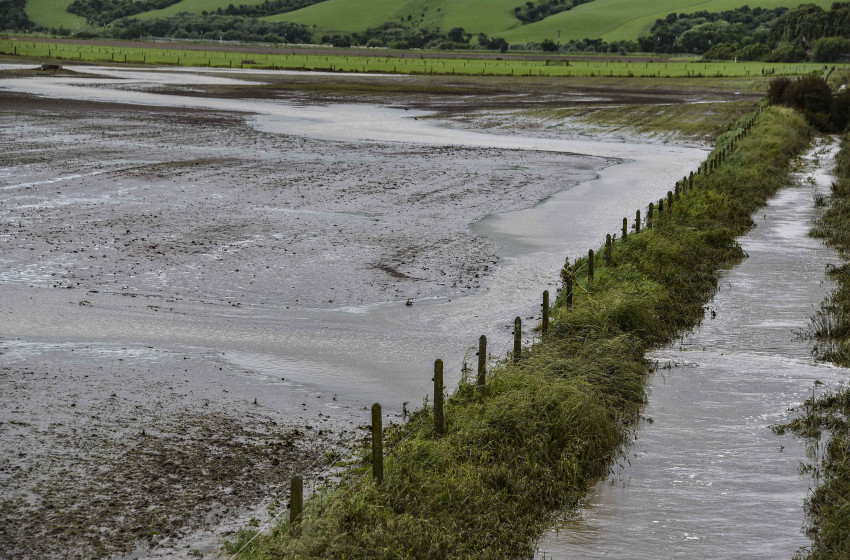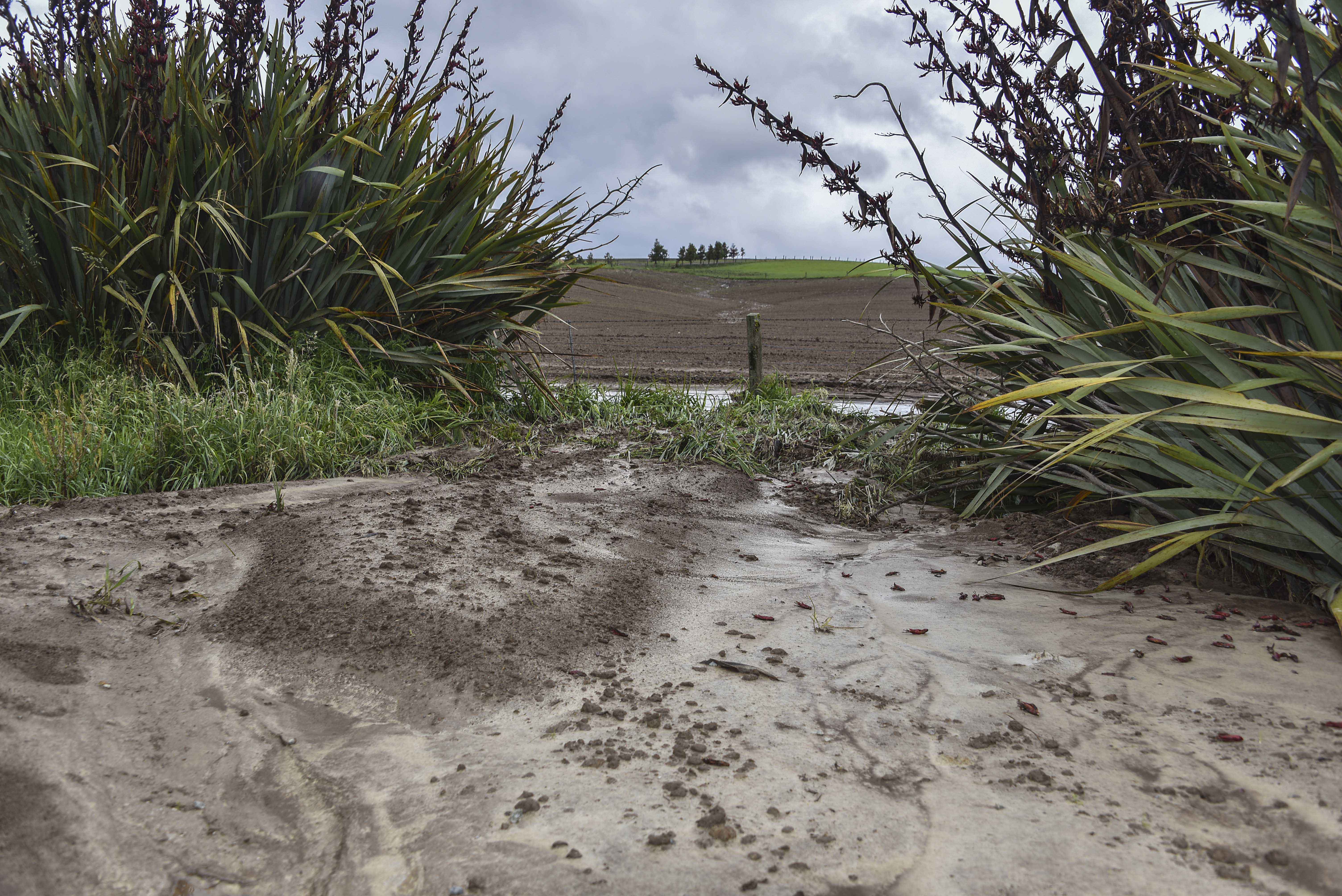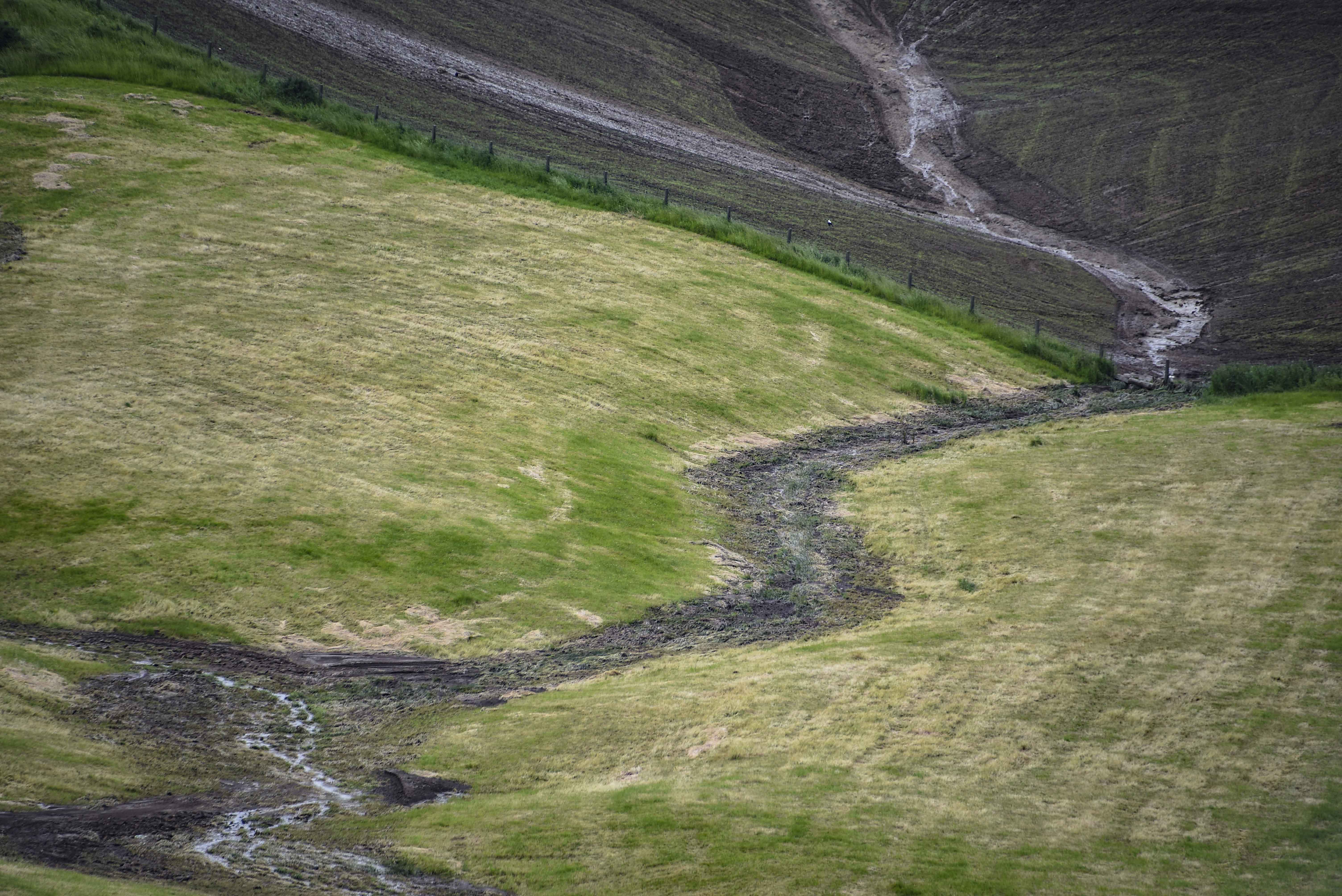Environmental Disaster Unfolding in Southland and South Otago
- 12/12/2018
- Richie Cosgrove

Fish and Game is warning that Southland and South Otago are facing another season of environmental damage and animal welfare issues as farmers continue to flout winter crop growing guidelines.
The warning follows widespread public concern in August after it was revealed that how farmers feed winter crops to farm stock was causing significant damage to the environment and extreme living conditions for animals.
Photos taken at the time showed animals left belly deep in mud and streams running brown with sediment washed from heavily grazed paddocks.

Sediment washes from a newly planted crop paddock into a Southland stream
Fish and Game says more photos gathered in recent days show Southland farmers haven’t changed how they plant feed crops and they are continuing to use environmentally damaging methods.
Fish and Game New Zealand chief executive Martin Taylor is frustrated the problem remains.
“This is already an environmental disaster and from what we are seeing, it isn’t going to get better,” Martin Taylor says.
“Crops are being planted too close to streams and on steep slopes with no effort being made to exclude gullies, provide proper buffer zones or follow guidelines,” he says.
“With new crops already in the ground, rain is washing the dirt into the streams, choking them and the aquatic life which lives there.”
Martin Taylor says the dairy industry needs to address the problem now.
“Sediment is already causing major damage to our rivers, lakes and streams, as well as choking estuaries and harbours. We need strong action to stop it now.”

Sediment washes into waterways from steep paddocks prepared for crops
Fish and Game says local government needs to do more to tackle the problem.
“This is the core job of regional and district councils but they are failing to do it,” Martin Taylor says.
“They must start acting, by setting appropriate environmental rules, enforcing them and punishing those who break them.
“Councils need to stop turning a blind eye to the problem and end their current policy of aiding and abetting polluters. We need strong, concerted and determined action to stop this environmental vandalism in its tracks,” Mr Taylor says.
“New Zealanders are fed up that once-clean streams and rivers are being turned into disaster zones by councils allowing industrial farming to ruin the environment.”